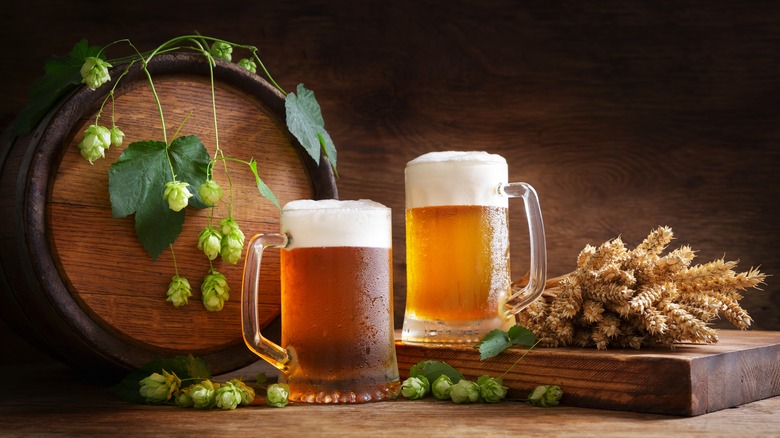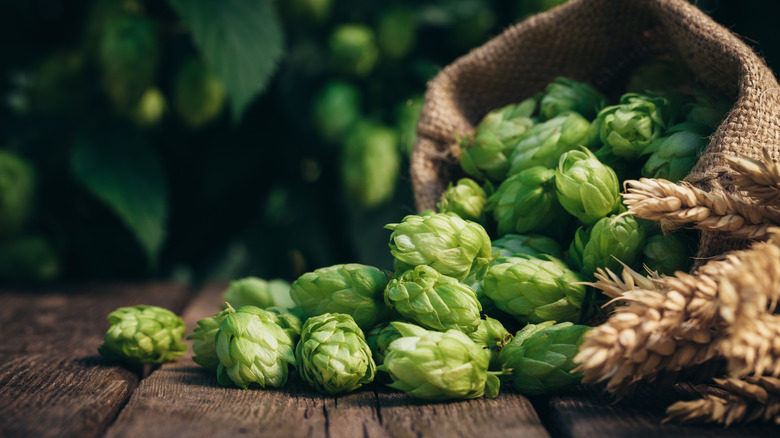Climate Change Is Making Beer Taste Worse — For Those Who Didn't Already Care
In case you need yet another reason to care about climate change, consider your favorite beer. Regardless of what types of beer you drink, they're all starting to show the effects of climate change.
Beer production commonly involves hops, which are bitter flowers that provide the classic flavor and scent of beer. Hops are primarily grown in Germany, the Czech Republic, New Zealand, and the Pacific Northwestern region of the U.S. Unfortunately, weather changes in these areas — specifically higher temperatures and decreased rainfall — are not only reducing hops production by as much as 35%, but they're also affecting the hops' taste.
Higher temperatures, for example, have been linked to lower levels of bitter acids in hops. In other words, certain beers might start tasting a lot less bitter, and thus, tasting a lot less like beer. Sure, some breweries could counteract this by using more hops to get more bitter acids, but at the end of the day, higher demand for a dwindling product will only translate to higher prices and fewer breweries around.
What's being done to protect the world's hops?
Although people don't have direct control over the weather or climate changes, experts have picked out a few ways to maintain hops production. For instance, as recently as 2021, the FOR HOPS initiative developed hops-specific sensors that can keep farmers up-to-date on soil conditions. If sensors say the soil is too dry for hops to grow successfully, farmers can quickly give the plants the water they need.
Similarly, others have experimented with growing hops in cooler regions with increased rainfall, thus lowering the risk of detrimentally high temperatures and drought. Still others are breeding new hops varieties that are more resilient against weather changes and other common crop issues. The Latitude 46 group in Washington, for example, is currently working on disease-resistant plants.
In the meantime, many hops farms are expanding their acreage to account for decreased crop yield, some by as much as 20%. Just some potential industry changes for you to keep in mind as you're taking another sip of beer.

